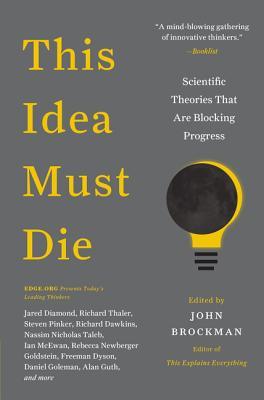Oliver Scott Curry: Associationism
In communication theory, information is the reduction of prior uncertainty. Organisms are 'uncertain' because they are composed of conditional adaptations that adopt different states under different conditions. These mechanisms can be described in terms of the decision rules that they embody—'if A, then B', or 'If you detect light, then move towards it'. Uncertainty about which state to adopt (to B or not to B), is resolved by attending to the specified conditions (A). The reduction of uncertainty by one half constitutes one 'bit' of information; and so a single decision rule is a one-bit processor. By favouring adaptations with more branching decision rules, natural selection can design more sophisticated organisms that engage in more sophisticated information processing, asking more questions of the world before coming to a decision. This framework explains how animals acquire information and learn from their environments. For the rat, a rule is, "If you ate something and subsequently felt sick, then avoid that food in future"; it has no such rule fingering sunsets, nose twitching, or fighting, which is why it never makes those connections. Similarly, this account explains why organisms facing different ecological problems, composed of different clusters of such mechanisms, are able to learn different things.
So much for rats. What about humans, who obviously can learn things that natural selection never prepared them for? Surely we must be able to levitate? Not at all; the same logic of uncertainty and information processing must apply. If humans are able to learn novel things, then this must be because they are able to generate novel uncertainty—to invent, imagine, create new theories, hypotheses and predictions, and hence to ask new questions of the world. How? The most likely answer is that humans have a range of innate ideas about the world (to do with colour, shape, forces, objects, motion, agents and minds), which they are able to recombine (almost at random) in an endless variety of ways (as when we dream), and then test these novel conjectures against reality (by means of the senses). And successful conjectures are themselves recombined, and revised, to build ever more elaborate theoretical systems. So, far from constraining learning, our biology makes it possible: providing the raw materials, guiding the process to a greater or lesser degree, liberating us to think altogether unprecedented thoughts, and fostering the growth of knowledge. This is how we learn from experience—and all without a whiff of association.
Notes:
Folksonomies: instinct innateness cogntition
Taxonomies:
/hobbies and interests/magic and illusion (0.577466)
/home and garden/pest control (0.576637)
/science/medicine/genetics (0.400564)
Keywords:
Oliver Scott Curry (0.965086 (neutral:0.000000)), decision rules (0.962174 (neutral:0.000000)), branching decision rules (0.945722 (neutral:0.000000)), natural selection (0.931898 (positive:0.497544)), rule fingering sunsets (0.926315 (negative:-0.429079)), sophisticated information processing (0.919479 (positive:0.497544)), different ecological problems (0.895900 (negative:-0.302383)), elaborate theoretical systems (0.863545 (positive:0.465788)), prior uncertainty (0.824497 (positive:0.308637)), conditional adaptations (0.765298 (neutral:0.000000)), single decision (0.755884 (neutral:0.000000)), sophisticated organisms (0.755035 (positive:0.497544)), different states (0.753288 (neutral:0.000000)), communication theory (0.753049 (neutral:0.000000)), different conditions (0.747062 (neutral:0.000000)), one-bit processor (0.746029 (neutral:0.000000)), nose twitching (0.741102 (negative:-0.596026)), specified conditions (0.730507 (negative:-0.475635)), different clusters (0.721116 (neutral:0.000000)), novel conjectures (0.719747 (neutral:0.000000)), unprecedented thoughts (0.718413 (positive:0.588243)), successful conjectures (0.717483 (neutral:0.000000)), different things (0.715800 (positive:0.275904)), innate ideas (0.714061 (positive:0.603573)), lesser degree (0.706787 (positive:0.344111)), raw materials (0.706622 (neutral:0.000000)), endless variety (0.703897 (negative:-0.375516)), novel things (0.700469 (positive:0.394314)), likely answer (0.699462 (positive:0.603573)), new theories (0.697093 (neutral:0.000000))
Entities:
Oliver Scott Curry:Person (0.884946 (neutral:0.000000)), one-bit:Quantity (0.884946 (neutral:0.000000))
Concepts:
Natural selection (0.984437): dbpedia | freebase
Decision theory (0.887450): dbpedia | freebase
Scientific method (0.742814): dbpedia | freebase
Admissible decision rule (0.727603): dbpedia | freebase
Theory (0.701125): dbpedia | freebase
Cognition (0.700012): dbpedia | freebase | opencyc
Uncertainty (0.662991): dbpedia | freebase | opencyc
Risk (0.590316): dbpedia | freebase





